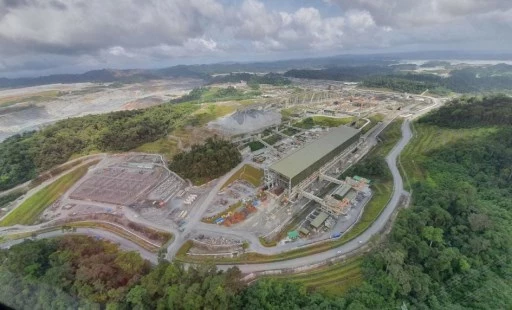Nicomedes Frias c.
(Panama City – ANPanama) Given President Laurentino Cortizo’s decision to hold a referendum to determine the future of Law 406, banking entity JPMorgan has conducted an analysis forecasting four possible scenarios if the referendum leads to the rejection of this legislation.
According to JP Morgan Bank, the first scenario raises the possibility of renegotiating the contract with the Canadian company First Quantum. In this case, the Panama government will seek to agree on new terms that can calm social unrest.
The second option includes terminating the contract with First Quantum, followed by negotiations to conclude a new agreement with another company in the mining sector.
The third alternative proposed by JP Morgan is for the state to take full control of the mine. However, in the last two scenarios mentioned, Article VIII of the International Treaty for the Promotion and Protection of Investments between Panama and Canada will apply. According to this article, the government will be obligated to compensate First Quantum for its investments estimated at approximately $7 billion.
In addition, the Canadian company will have the option of resorting to international arbitration, unless public interest reasons are justified and the appropriate legal process for nationalizing the mine is followed. In this context, the vote of the Supreme Court becomes a decisive factor.
Although this seems unlikely, the JPMorgan study considers the possibility that the mine will cease operations. Even if the protests had indicated environmental concerns, this latter scenario would have serious consequences in terms of financial and economic losses.
JPMorgan reiterated that losing Panama’s investment grade rating was a significant risk despite the continued failure to meet its financial targets. The argument was simple: at around 5% year-on-year, average growth in the medium term should be enough to allow the country to get out of debt without needing any major fiscal adjustment.
However, the study suggests that if Panama’s perception as a “business-friendly” destination is challenged, the medium-term growth rate will be at risk, paving the way for a credit rating downgrade, perhaps to the point where the country loses its credit authority. Investment grade rating.
“We believe that the events of the weekend have changed the distribution of the risk of Panama losing its investment grade rating from tail risk to significant risk. “Much will depend on the outcome of the referendum, which remains unknown at this stage,” he added.
The banking entity expressed concern after it was reported that a referendum would be held on the continuation or termination of the contract. Which was approved a few days ago. The referendum is scheduled to take place on December 17.





